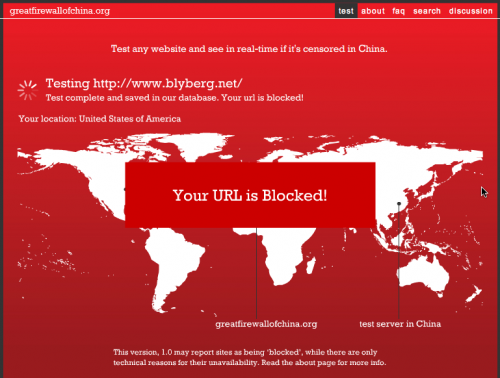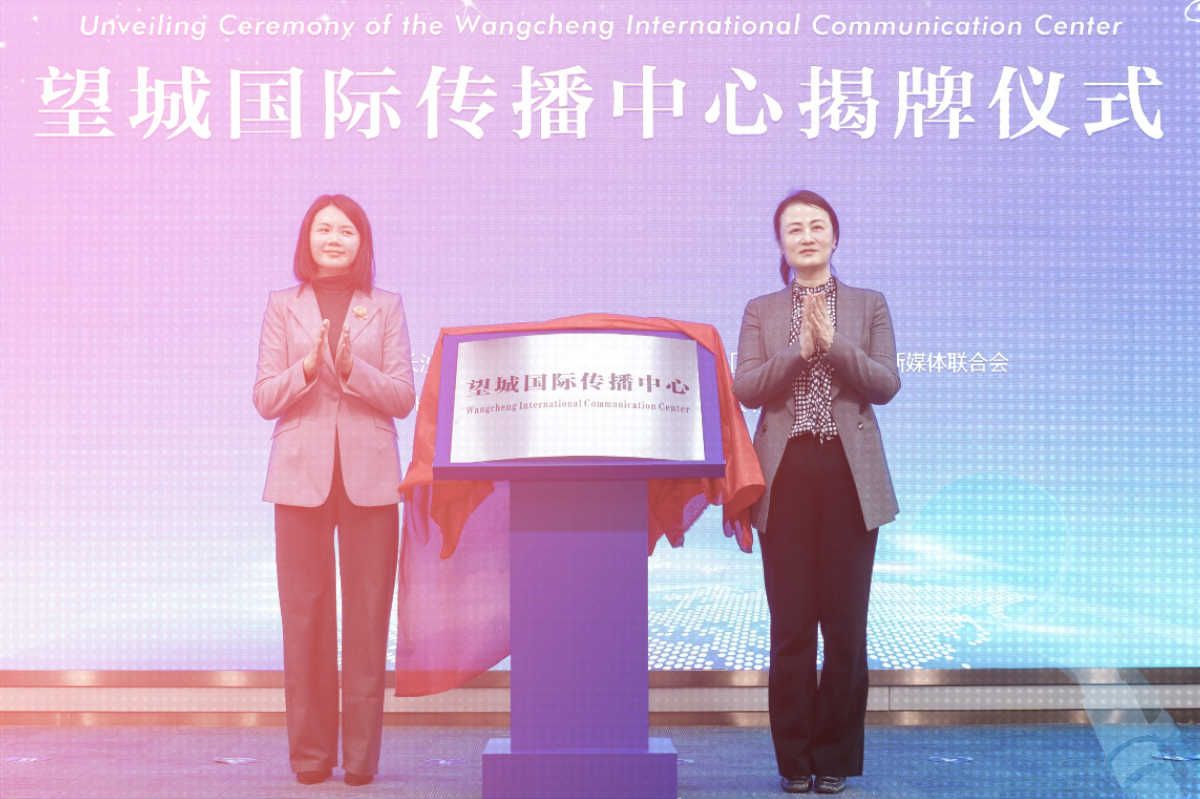I wrote earlier this week about the development of the concept of “Internet sovereignty” in China since the 2010 release of a government white paper called, “The Internet in China.” I discussed the impact the concept might have on global cyberspace now that it is a core agenda for Chinese President Xi Jinping.

In order to better understand how the Chinese Communist Party understands “Internet sovereignty” — or “cyber-sovereignty” — we can take a look at how its own strategists have discussed the notion.
Back in July, Ye Zheng (叶征), a member of the Strategic Advisory Committee of the People’s Liberation Army, published an article called, “Thoughts on Internet Sovereignty,” addressing three key points:
1. Internet sovereignty directly impacts national security and stability.
2. Internet sovereignty can easily be neglected and infringed upon.
3. China needs to constantly raise awareness about the protection of Internet sovereignty.
Ye Zheng’s article first appeared in China Information Security, a magazine published by the China Information Technology Security Evaluation Centre (ITSEC) — this being a body created in 1997, during the the infancy of the Internet in China, to “provide the nation with technical support in the area of information security.”
China Information Security was launched in January 2010, at the outset of a year that would prove a seminal one for Internet controls in China and the emerging notion of Internet sovereignty. It was the year of the above-mentioned white paper, and also the year of Google’s testy exit from China.
China Information Security, a magazine dealing with the issue of network security and now “Internet sovereignty,” and with unspecified links to the PLA.
China Information Security appears to be closely aligned with the Chinese military, and a large number of its contributing writers and editors are identified as members of the People’s Liberation Army. The magazine’s assistant publisher and editor of its Strategic Cyberspace Forum, for example, is Qin An (秦安), a PhD graduate of the PLA Information Engineering University (which does technical training for network security and has been linked to possible state-supporting hacking) and the author of the recent book Cyberspace Quantum Leap — the literal translation would be Breaking Through Internet Containment — which deals in depth with national security and the “Internet war.” (Qin’s first chapter deals primarily with the Wikileaks scandal and the threat posed to China by the “online war preparations” of the United States military. His second chapter is titled, “Without Internet Security There is No National Security.”)
One of the first points Ye Zheng makes in his recent China Information Security article is that “Internet sovereignty” represents China’s own refinement of the concept of national sovereignty, and that this is something of which China should be proud:
Lately, China has taken the lead in raising and supporting the use of the concept of “Internet sovereignty,” and this is not just an innovation in the notion of national sovereignty, but also a national mission, and it is gradually being accepted by more and more countries. Naturally, our field of vision should expand further on the question of how to understand and safeguard Internet sovereignty as the primary concern in the building of a strong cyber-nation . . .
Ye later refers to “Internet sovereignty” as “an innovative perspective on sovereignty” (创新性主权观). And we can also sense in this passage the interest (and reputed success) in advancing worldwide China’s unique conceptualisation of sovereignty in the digital age.
As China advances its own understanding of “Internet sovereignty,” this is contrasted with the disapproval of “certain Western nations,” most notably the United States, which has, says Ye Zheng, habitually “posited these [notions of Internet sovereignty] in opposition to “Internet freedom.” As a rhetorical device, Ye’s article employs the language of necessity to suggest that China’s own notion of sovereignty in cyberspace is now the only admissible one in light of very real changes internationally:
But lately the situation is changing, and “Internet sovereignty” is gradually being accepted internationally. Even Americans will admit in open forums that the question of sovereignty does pertain to the Internet, and will use this as a pretext for using force to safeguard the United States’ own cyber-security. This dramatic change illustrates that for “Internet sovereignty” to come into the view of society is not just a conceptual innovation, but even more is a necessity arising from objective developments.
The next rhetorical device is to appeal to the professedly ancient and unchangeable truths about sovereignty. “For thousands of years,” says Ye, “through the progress of human civilisation, we have sought to consolidate and improve our national systems, and the idea that national sovereignty could not be violated gradually a generally respected and unwavering code.” Sovereignty, Ye Zheng argues, is a “basic right” of the nation, “indivisible and inalienable.”
But the content of sovereignty, that does change, says Ye:
[From] the earliest stages in which it referred to territory, it extended to the seas, then to the skies, and thence to space. With the emergence of online space, this must be integrated into the general category. The division now is not whether or not the question of sovereignty applies to cyberspace, but rather how we define “Internet sovereignty,” and how to protect it.
As Ye turns to a discussion of the link between “Internet sovereignty” and national security and stability (国家安全稳定), the Chinese Communist Party’s own experience with domestic political unrest in 1989, which has defined its attitude toward media and information ever since, is conspicuous. His language emphasises threat and loss of control, and speaks of forces that must be restrained. As the world entered a new century, he says, the “information web infiltrated every corner of our lives like a maniacal giant.” The Internet, he says, is “a double-edged sword.”
[I]f a country loses its Internet sovereignty, the result is too dreadful to contemplate. It will result in the loss of control over the systems governing lifeline economic sectors such as national industry, transportation, finance and resources, and result in untold economic damage. It will result in the loss of control over the guidance of online public opinion, sparking serious unrest and upheaval in society, directly challenging state power. It will result in the loss of control over military information networks, leading to command failures in the case of war . . . resulting in a nation defeated and broken.
In discussing the need for greater consciousness of the need to “preserve Internet sovereignty,” Ye makes it clear that the two most seminal events in the development of the policy were the were in June 2010 of the government white paper, “The Internet in China,” and President Xi Jinping’s address in writing to the “Wuzhen Summit” in November 2014. He also mentions the case of Google in China — or exiting China, rather — as a textbook instance of refusing to budge on the fundamental issue of Internet sovereignty: “During the Google storm in 2010, when China’s government outright refused Google’s demands that it be allowed the freedom to step beyond the bounds of Chinese laws and regulations, this was a resolute defence of Internet sovereignty.”
In order to advance Internet sovereignty, says Ye, there must be greater effort to explain the idea both inside and outside China. Domestically:
[We must] promote discussion of cyber-security among the masses, making the masses understand that just as we must defend our national territory, our seas, our airspace and outer space, so must we defend the Internet sovereignty of our nation, preserving network order and national stability, and fighting a war in defence of the Internet sovereignty of the people as a whole in the information age.
And China must, says Ye, take its defence of Internet sovereignty on the road, ensuring it becomes the dominant lens through which to observe and understand the process of Internet governance worldwide:
Finally, [we] must continue with a clear banner to promote our vision of Internet sovereignty internationally. The emphasis on sovereignty is to be principally directed toward the outside, and by declaring Internet sovereignty overseas we may arrive at unity of context and be clearer about its meaning, so that the justice of Internet sovereignty is accepted by the world.





















